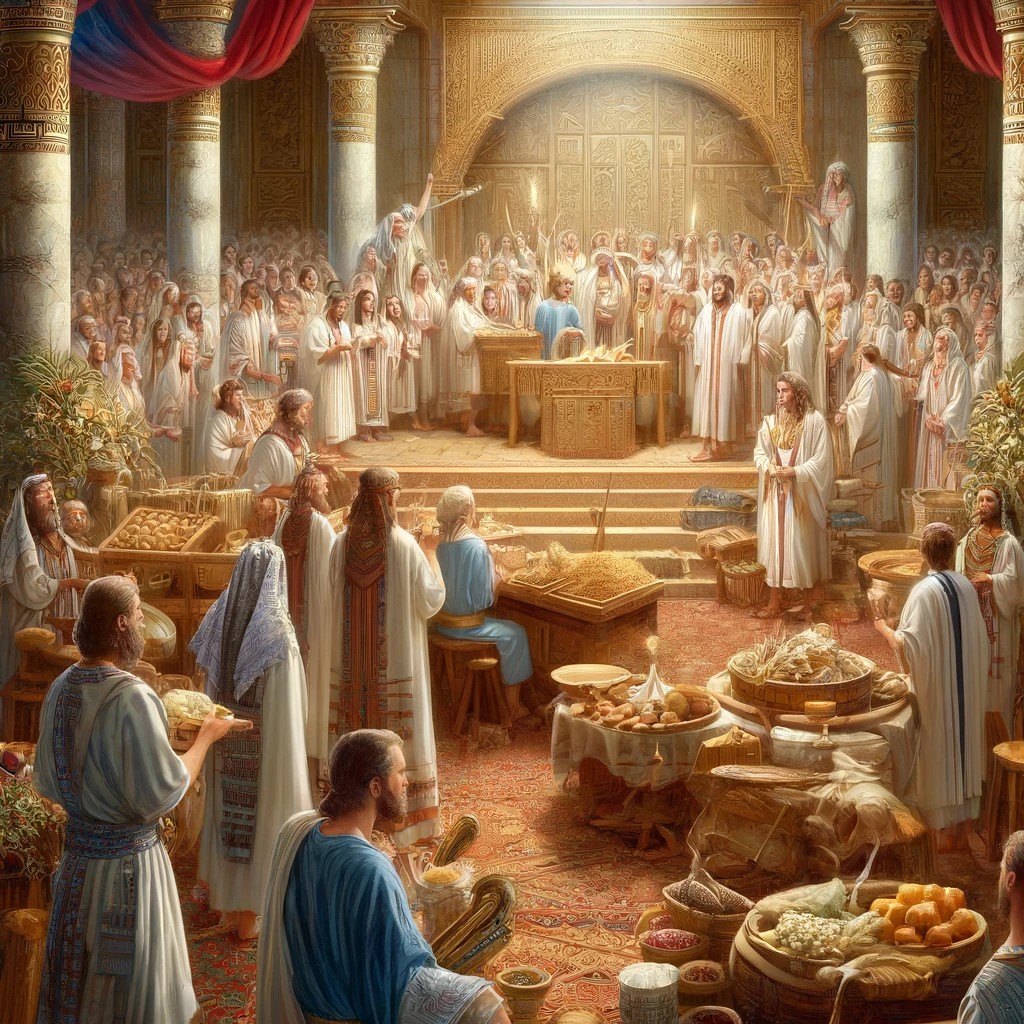Introduction
Numbers 18 offers a detailed look at the roles and responsibilities assigned to Aaron, his sons (the priests), and the Levites. This chapter is pivotal in defining the operational structure of religious service and the distribution of tithes and offerings in ancient Israel. It not only clarifies the duties of these groups but also highlights the significance of their work in maintaining the sanctity and order of the Tabernacle. This blog post delves into the intricacies of these assignments and reflects on their implications for leadership and service in faith communities today.
The priestly responsibilities.
Aaron and his sons are set apart with specific duties and privileges. They are charged with the direct care of the sanctuary and the altar, bearing the responsibility for any offenses related to these sacred duties. This exclusive role underlines the serious nature of their work and the spiritual purity required to perform it.
The role of the Levites.
The Levites, while not priests themselves, are given the significant task of assisting the priests and overseeing the broader aspects of the Tabernacle’s maintenance. Their work supports the priests and ensures that the logistics of worship and sacrifice are smoothly managed, demonstrating the essential role of support in any leadership structure.
Tithes and offerings.
Numbers 18 also details the system of tithes and offerings that support the priests and Levites. It specifies that a portion of the offerings given by the Israelite people is to be reserved for the priests, with a tithe of this portion going to the Levites. This reciprocal system ensures that those dedicated to God’s service are provided for, allowing them to focus on their spiritual duties without material concerns.
Lessons for today.
Respect for leadership: The clear delineation of roles within the Tabernacle teaches us the importance of respecting and supporting those in leadership positions within our own communities.
The sanctity of service: The serious nature of the priestly duties highlights the sanctity of religious service, reminding us that positions of spiritual leadership carry profound responsibilities.
Support systems: The support provided to the priests and Levites through tithes illustrates the importance of community support for leaders, ensuring that their material needs do not hinder their spiritual duties.
Conclusion.
Numbers 18 provides a foundational understanding of the roles and responsibilities within the Israelite religious community, offering lessons on leadership, support, and community responsibility that are still relevant today. By studying these ancient structures, we can gain insights into how to better structure our own communities to support spiritual growth and leadership.
Reflection.
Consider how the principles outlined in Numbers 18 can apply to your own community or religious organization. How can we better support our leaders, and what can leaders learn from the examples of Aaron and his sons? In Jesus’ Name, Amen.






